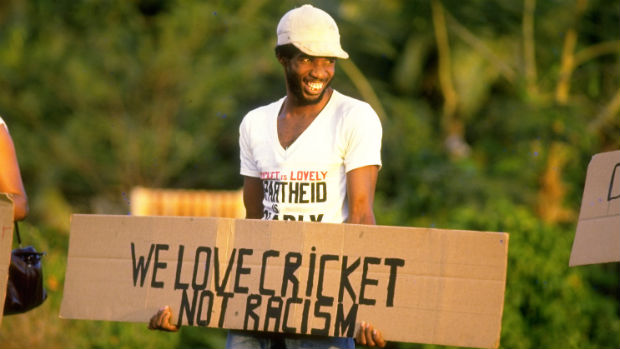Russia World Cup: a history of sporting boycotts
If some nations refuse to take part in the 2018 World Cup in Russia, they will be following in a long tradition

A free daily email with the biggest news stories of the day – and the best features from TheWeek.com
You are now subscribed
Your newsletter sign-up was successful
When Qatar was awarded the 2022 World Cup it overshadowed Fifa's equally controversial decision to hand the 2018 tournament to Russia.
In the years since, Qatar has dominated the headlines, but with the Russian tournament now less than four years away and Vladimir Putin engaged in a game of political brinkmanship with the West over Ukraine, the prospect of a boycott has been mooted.
Not only is there a political motive, some players, including Yaya Toure, have warned that they could refuse to play in Russia over issues such as racism, still frighteningly common among football fans in the country.
The Week
Escape your echo chamber. Get the facts behind the news, plus analysis from multiple perspectives.

Sign up for The Week's Free Newsletters
From our morning news briefing to a weekly Good News Newsletter, get the best of The Week delivered directly to your inbox.
From our morning news briefing to a weekly Good News Newsletter, get the best of The Week delivered directly to your inbox.
The prospect of a mass boycott is remote, but it would not be the first time it has happened:
1980 Olympics
The most celebrated boycott of a single sporting event in recent times involved the Moscow Olympics in 1980. The Games were held soon after the Russian invasion of Afghanistan and US president Jimmy Carter called for nations to stay away in protest. In total 62 countries including the US, West Germany and Japan refused to attend. Some British athletes did go, but competed under the Olympic flag. Britain's five gold medallists (including Seb Coe, Steve Ovett and Alan Wells) were presented with their medals to the strains of the Olympic anthem.
Other Olympics
A free daily email with the biggest news stories of the day – and the best features from TheWeek.com
The 1980 boycott was by no means unique. Almost every Games before the end of the Cold War and apartheid experienced some form of political boycott. Countries on the losing side in the two world wars were barred from the subsequent Olympics, for example, and crises such as the Suez affair and Soviet invasion of Czechoslovakia prompted action. China did not attend between 1956 and 1980 because of Taiwan's presence. In 1976 several African nations stayed away in protest at New Zealand's refusal to sever links with apartheid South Africa and the 1984 Los Angeles Games were boycotted by Warsaw Pact nations in retaliation for the 1980 boycott.
South Africa
The apartheid regime made South Africa a global pariah and sport became a battleground. There were several notable episodes:
The D'Oliveira Affair. Mixed-race South African cricketer Basil D'Olivera moved to England in 1960 and began playing for the country in 1966. His selection for the England tour of South Africa in 1968 precipitated a political crisis, which led to the cancellation of the tour and increasing isolation for South African sport. Between 1970 and 1991 there were just a handful of 'rebel' tours to the country, and those who joined them were banned from playing for their country.
Rugby Union. The IRB never severed links with South Africa and tours to the country, although technically legitimate, attracted huge controversy. The British Lions toured in 1981 but another trip in 1986 was cancelled. Amid mounting anger South Africa, was banned from the first two Rugby World Cups in 1987 and 1991. In 1995 the post-apartheid South Africa hosted and won the tournament. Nelson Mandela's attendance at the final was hugely symbolic, given rugby's association with the previous regime.
The Olympics. South Africa did not compete at Olympic Games between 1964 and 1988, but was readmitted in 1992. However, its presence was still felt at the 1976 Games when New Zealand's continued sporting contacts with South Africa led to an African boycott of the Games.
Football. South Africa was suspended from Fifa in 1964 and expelled in 1976. The national side had not played a match for two decades when they took on, and beat, Cameroon in 1992. Nicknamed Bafana Bafana, they did not take part in a World Cup until 1998, but the nation hosted the event in 2010.
1938 World Cup
The third World Cup was held in France and won by Italy, but only three countries from outside Europe competed – Brazil, Cuba and the Dutch East Indies (Indonesia). Egypt was the only African country to enter, but withdrew after refusing to play Romania in a qualifying match during Ramadan. More significant, in those days, was the absence of almost all the South American nations. Teams from Argentina, Uruguay, Mexico, Colombia, the USA and others withdrew in protest at the decision to host a second successive tournament in Europe.